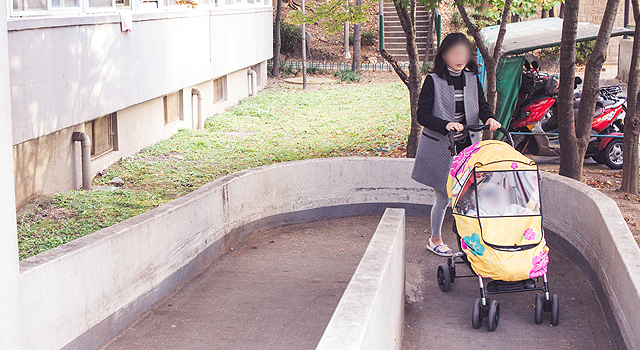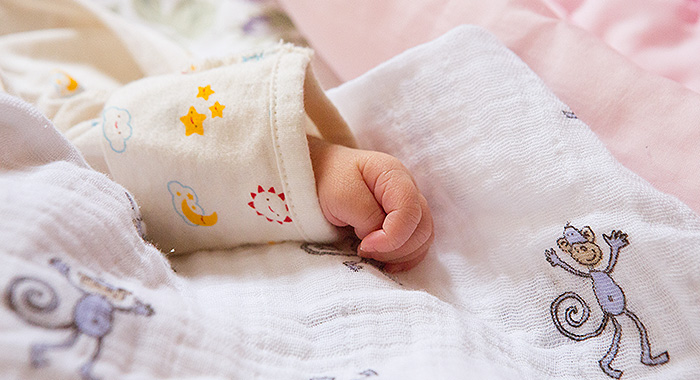Starting Fresh: A Conversation with Jin Kyung

Jin Kyung escaped North Korea after experiencing her own modern-day Cinderella story. Her parents divorced when she was still young, and for a short time she lived comfortably with her father, but when her father remarried a year later, Jin Kyung’s life took a turn for the worse. Her father often worked away from home, leaving her alone with her stepmother, who scolded and punished her every day. Resolving to find a better life for herself, she escaped to China.
Jin Kyung was sold soon after crossing the border, but the family she had been sold into showed kindness and love to her. Unlike many women who are sold, she was allowed to come and go as she pleased. She came to be fond of the Chinese man and his parents. However, Jin Kyung wasn’t ready to settle for a life as an illegal immigrant in China despite being grateful for a happy home. Her new family helped coordinate her escape to South Korea, which she admits is not a common occurrence. After resettling in South Korea, she attended school and eventually reunited with the Chinese man, who is now her husband. They have a four-month-old son together and she’s currently a stay-at-home mom.
Our resettlement coordinator Anna visited with Jin Kyung and her son recently to see how they're doing.

Anna: What was the best thing that happened to you recently?
Jin Kyung: I’m grateful for every day for numerous reasons. It especially warms my heart to see my baby smiling, although taking care of him is sometimes physically demanding. My husband and I talked about having a second, but I’m not sure if I can handle it if I start attending college. In fact, I also passed the GED this past April and just submitted two college applications yesterday as a hair design and make-up artist major.

Anna: What's your biggest challenge in South Korea?
Jin Kyung: Raising a child is very challenging and sometimes tiring, but I enjoy it so much and want to have a second one as soon as possible.
After I got out of Hanawon and for a few months after that, I felt so lost and clueless.

Anna: How did you overcome the challenge?
Jin Kyung: Although many people recommended for me to go back to school, I only wanted to earn money to send to my family in North Korea. I soon found a job at a factory, but realized that there’s a limitation to the types of careers that I can pursue if I don’t get a proper education. I realized what my priority should be after working in a labor-intensive job at the factory.

Anna: Who has been the biggest help (outside of LiNK) to you since you arrived in South Korea?
Jin Kyung: A teacher from the alternative school that I attended the last few years. She is the one who actually got me interested in studying and led me to gain different perspectives on the world and life. She’s such an enthusiastic person who didn’t mind if I asked her questions, and she was always available when I needed her. I’ve been able to achieve as much as I have up until now thanks to her.

Anna: What was your biggest challenge in North Korea?
Jin Kyung: Living itself was very hard. I always faced starvation and struggled with serious domestic conflict. When I reached puberty, I abruptly left home to escape from that reality.

Anna: What is it like living in freedom in South Korea?
Jin Kyung: I believe resettling in a new society is not easy whether you have more freedom or not. I had an inferiority complex because I had a different intonation and background from South Koreans. For example, I couldn't even understand what a bank clerk was saying to me one time. I used to care so much what other people thought about me. It just takes time to adjust to a new community.

Anna: What is something that you started to do in South Korea that you never did before?
Jin Kyung: STUDY! I've always wanted to attend school to study and make friends since I was back in North Korea, but I had to leave school at a young age for family reasons. At first, I had no confidence in myself to study again, and I was honestly afraid to start anything at that time. The teacher whom I mentioned earlier, she boosted my confidence by lavishing me with praise. She encouraged me with praise for one correct answer instead of scolding me over nine wrong answers. In spite of many unfamiliar words in math, Korean, science, sociology, and history classes, I quickly gained more confidence and started to catch up! I’m still so proud of myself for passing the GED this year and I’m anxious, yet excited, to start college soon.

Anna: Have your perceptions of Americans and South Koreans changed?
Jin Kyung: I honestly had no spare time to care anything other than living day by day. I really didn't know much about other countries, but the fact that I grew up hearing bad things about them gave a negative impression. I actually used to think that the U.S. is the cause of separation of the Korean peninsula and wished that the U.S. had never existed, however, those thoughts all changed once I arrived in China by simply watching Korean movies and dramas.

Anna: What advice would you give to a friend who just arrived in South Korea?
Jin Kyung: I don’t think I’m in a position of giving them advice because there are many defectors who have lived here longer than I have. Nonetheless, I realized a few things as I resettled in South Korea. I wish North Korean defectors opened up their mind more to accept this new culture and engaged with South Koreans. I believe that it’s difficult to understand someone’s hardship if you haven’t been in the same situation, so I, as a North Korean defector, would like take an approach to get along with South Korean friends.

Anna: How often do you think about North Korea? What do you think about?
Jin Kyung: I should, but I tend not to think much about North Korea. I get upset whenever I think of North Korea because it brings out my hurtful memories and struggles. I’m also so sad and feel pity for those who still live under the miserable circumstances.
You can help more North Korean refugees escape China and resettle in a safe country. Start a fundraiser today!
Creating home: An Interview with our U.S. Resettlement Assistance Manager

While the majority of the North Koreans who come through our rescue network wish to resettle in South Korea, a small group choose to come to the United States. Drawn by family, friends, and new opportunities, they resettle all across the country. Because resettlement to the U.S. comes with its own set of unique challenges—mainly the language barrier—we have programs specially designed to help North Koreans find their footing in their first few years. Our U.S. resettlement manager Kris explains the details of the resettlement process and her work with LiNK in more detail.

Describe a normal day at your job.
What’s cool about my job is that no work day is the same. From helping a North Korean register for school to purchasing bikes for a family (both are things I have done very recently), every day is different. I travel quite often to visit refugees and to meet with partner organizations. I also spend a lot of time researching government and community benefits, changes in immigration laws, and educational resources. I will say that the two services I provide almost every day are translation and interpretation.

What do you enjoy most about your job?
The North Korean friends we work with are pretty awesome. It really is my privilege to be able to work with such an amazing group of people. I get to help them but I also learn so much. My job never gets boring. They challenge me to do more and be better. My colleagues at LiNK are pretty cool, too. =)
What is the most difficult part about your job? What was most surprising about the work you do?
The number of North Korean refugees who have resettled in the US is pretty small so people tend to put them in one group and form generalized opinions about them. But what I learned over the years and what some people might find surprising is that each person is so unique in their backgrounds, family dynamics, worldviews, reasons for defection, life goals and dreams. It’s challenging to be able to assess and meet their differing needs and help them reach not only self-sufficiency but also the eventual self-actualization and fulfillment. But I’m proud of the individualized and flexible case management that we have been able to offer to the people we serve. As we expand our work, I hope we will continue to have capacity to offer individualized care.

What are some of the challenges that our North Korean friends face as they resettle here in the US?
There are so many. Most common ones would be language and cultural barriers. Access to transportation is a huge challenge because although many states offer driver’s license exams in Korean, there are some that don’t, so the refugees have to learn English first in order to take the driver’s license exam. Some of the more recent and regionally-specific challenges are lack of affordable housing and immediate employment opportunities.

What are some of the challenges in running a North Korean refugee post-resettlement program here in the United States?
The fact that the people we work with are scattered all over the country makes it difficult to do anything in-person. Geography has always been the biggest challenge for me because I’d love for us to be more accessible to the refugees and do more in-person programs with them. Most refugee agencies serve local communities because it’s difficult to be a direct service provider from afar. We have to be creative to stay connected to the people we serve. One good thing that the pandemic did was normalizing virtual communication, and we were able to successfully execute an entrepreneurship program and a mentorship program virtually during the pandemic.
What was one of your most memorable events in this role?
Not long after one of our clients died in a car accident, I flew out to see her minor children. I knew that no words would bring comfort to them at that point. I took them out to see a movie and we went to get our nails done. Of course, we got some boba afterwards. Then per their request, we went out to a hot pot restaurant for dinner, and there we ran into some people from their church. The people assured me that the children will be taken care of and the community will be there for them. I went out there to bring some comfort for the children, but instead, I was the one that was comforted more than anyone. It’s just one of those days that I’ll always remember.

What is something you wish the world knew about North Korea or the North Korean people?
Maybe I can just say something about the North Korean refugees, rather than the entire country of North Korea or the North Korean people inside the country. North Korean refugees, in their defection and resettlement process, have gone through so many unimaginable obstacles and have overcome them with such incredible resilience and determination. I believe that they have this amazing potential to overcome any barriers and to succeed in their new life. I hope the whole world understands this and welcomes the refugees with open arms.




